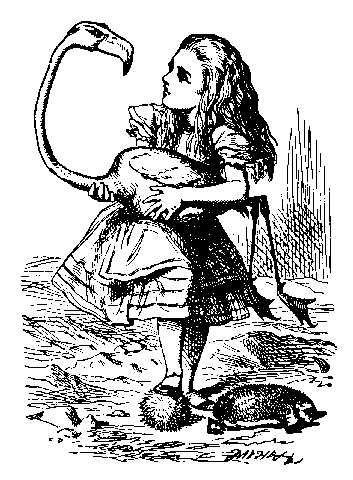Seven words for ‘ball’ in Irish, including “football” (soccer ball) Posted by róislín on Jun 28, 2014 in Irish Language
(le Róislín)
Irish has one basic word for “ball” for most sports, “liathróid,” and another word, “sliotar,” which is specifically for a hurling ball. Let’s take a look at these, and then as space permits, we’ll look at other related phrases (snowball, meatball, etc.)
“Liathróid” [LEE-uh-HROHDJ] is a feminine noun, with the following forms:
an liathróid, the ball (peil, sacar, liathróid láimhe, srl.)
liathróide, of a ball, as in “giolla liathróide” (ball boy or ball girl, in tennis, lit. a “ball lad”)
na liathróide, of the ball, as in “conair na liathróide” (ball flight path, in table tennis)
liathróidí, balls
na liathróidí, the balls, OR of the balls
Here are a few types of balls for specific sports. Can you guess them?
A1) liathróid chispheile
A2) liathróid eitpheile
A3) liathróid ghailf
A4) liathróid leadóige
A5) liathróid rugbaí
So that’s the “liathróid.” And then there’s the “sliotar” [SHLIT-ur] the small hard ball specifically for hurling and camogie. Here are some of its forms:
an sliotar, the hurling ball. This word is grammatically masculine.
an tsliotair [un TLIT-irzh], of the hurling ball
na sliotair [nuh SHLIT-irzh], the hurling balls
na sliotar [nuh SHLIT-ur], of the hurling balls
Now here’s a little mystery, and perhaps some reader can answer it:
The term “sliotar róin bó” means “cow-hair ball.” The component words are clear enough, “sliotar” + “rón” (usually horse-hair, but here more general; “róin” = of horse-hair, etc.) + bó (cow, of a cow). So, is this the type of hairball, apparently found in the stomachs of cows (as in: http://www.roadsideamerica.com/tip/7446 at the Finney County Historical Museum in Garden City, KS) or is it a sports ball made from cow hair? And does that mean the hair of a cow’s tail? Otherwise, wouldn’t we be talking about “hide”? And isn’t a cow’s tail more hide than hair anyway, compared to a horse’s tail, which, I guess, is almost all hair?
Well, that’s one mystery, and here’s a little more practice using the word “ball” in various contexts in Irish. Can you guess these?
B1) bolgán béice
B2) caor ordanáis
B3) ceirtlín chorda
B4) ceirtlín snátha
B5) iascmheall
B6) liathróidí leamhan
B7) liathróid shneachta (also “meall sneachta” and “cnapán sneachta”)
B8) liathróid chriostail (aka “liathróid feasa”)
B9) meall súile
B10) millín feola (also “feoilmheall)

Cad a dhéanann an ghráinneog di féin: liathróid, sliotar, bolgán, caor, meall, millín nó ceirtlín? De réir scéal ‘Eilís i dTír na nIontas’ nó sa saol mar atá? Freagra sa téacs!
And finally, at least according to traditional usage, which of these words would we use for a gráinneog (hedgehog) that has curled itself into a ball: liathróid, sliotar, caor, bolgán, meall, millín or ceirtlín? Freagra thíos, cuid C.
Well, I hope you enjoyed this workout. I had a “ball” putting it together. Couldn’t resist that one! – SGF – Róislín
Freagraí:
Cuid A:
1) liathróid chispheile [… HISH-FEL-yuh], basketball
2) liathróid eitpheile [… ETCH-FEL-yuh], volleyball
3) liathróid ghailf, golf ball [remember, the “gh” is the ‘throaty’ voiced velar fricative sound, as described in previous blogs for saying “Mo ghrá thú” (I love you) or “Dia dhuit, a Ghráinne” (Hello, Gráinne)
4) liathróid leadóige [… LAD-oh-ig-yuh], tennis ball
5) liathróid rugbaí, rugby ball
Cuid B:
B1) bolgán béice, a puff-ball
B2) caor ordanáis, a cannon-ball
B3) ceirtlín chorda, a ball of string. Note: the word “ceirtlín” can vary in gender, according to dialect, and this may affect the form of the word following it.
B4) ceirtlín snátha, a ball of thread or yarn
B5) iascmheall, a fish-ball
B6) liathróidí leamhan, mothballs
B7) liathróid shneachta (also “meall sneachta” and “cnapán sneachta“), a snowball
B8) liathróid chriostail (aka “liathróid feasa“), a crystal ball
B9) meall súile, eyeball
B10) millín feola (also “feoilmheall“), meatball
Cuid C:
Déanann an ghráinneog ceirtlín di féin. The hedgehog curls itself into a ball (ceirtlín).
Pictiúr: http://www.gutenberg.org/files/114/114-h/114-h.htm#alice30

Build vocabulary, practice pronunciation, and more with Transparent Language Online. Available anytime, anywhere, on any device.




Leave a comment: